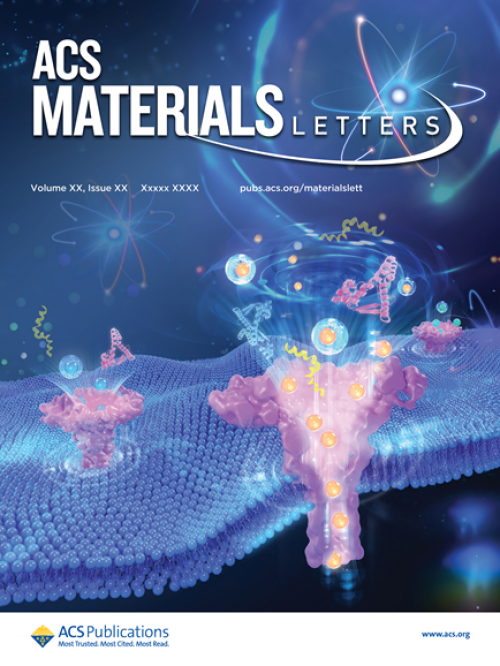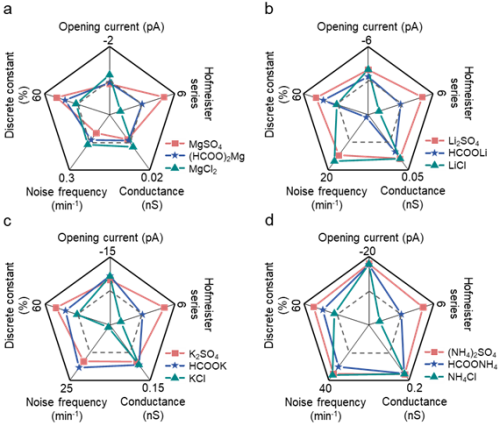

Most fashionably used salts in regulating nanopore stoichiometry are compositions of monovalent cations and chloride anion in aqueous. There is a paucity of studies toward nanopore stoichiometry using chaotropic salts which cause Hofmeister effect via changing the hydrophobic interactions and structures between ions and water molecules, subsequently, enable the effectiveness of specific ions on characterizing confined surface interactions, regulating physicochemical parameters, segregating chemical/molecular species etc. Although some biological nanopores have been developed, the stability of their electrical properties limits their application in biomolecular information analysis.

Figure 1. Hofmeister Effect Matters in Nanopore Stoichiometry.
Recently, scientists in Chongqing Institute of Green and Intelligent Technology, Chinese Academy of Sciences, regulated electrical properties of nanopores by Hofmeister effect (Figure 1). This study conducted electrical determination of chaotropic salts (15 compositions by cations Mg2+, Li+, K+, NH4+, anions SO42-, HCOO-, Cl-, CF3COO-) induced Hofmeister effect in a novel anthrax protective antigen nanopore. The results showed that the electrical performance (e.g., discrete constant, opening current strength, signal-to-noise ratios, channel gating) with chaotropic salts displays either cation-dominated or anion-dominated Hofmeister effect in the nanopore, and the ion-dependent effect ranks similarly as Hofmeister series of either Chaotropes or Kosmotropes (Figure 2). In addition, the ion-gating investigation also indicated high concentration of chaotropic ions can effectively diminish the occurrence of channel “occlusion”. The chaotropic salts optimized anthrax nanopore is overall precise enough to carry out distinguishment of single amino acids, glycan, polymers, of different categories of small molecules, at single-molecule level. The work provides a new candidate for extending horizons in nanopore stoichiometry, may also inspire creative development of biomimetic ion-responsive sensors.
This work entitled “Hofmeister Effect Matters in Nanopore Stoichiometry” is accepted for publication in ACS Materials Letters(featured on journal front cover). Jing Li is the first-author (Chongqing University of Posts and Telecommunications), Dr. Liang Wang is the corresponding author. This work was supported by the National Key Research and Development Program of China, Chongqing Talents-Exceptional Young Talents Project, the Youth Innovation Promotion Association of Chinese Academy of Sciences. 论文链接

Figure 2. Hofmeister effect regulates the electrical properties of anthrax nanopore.